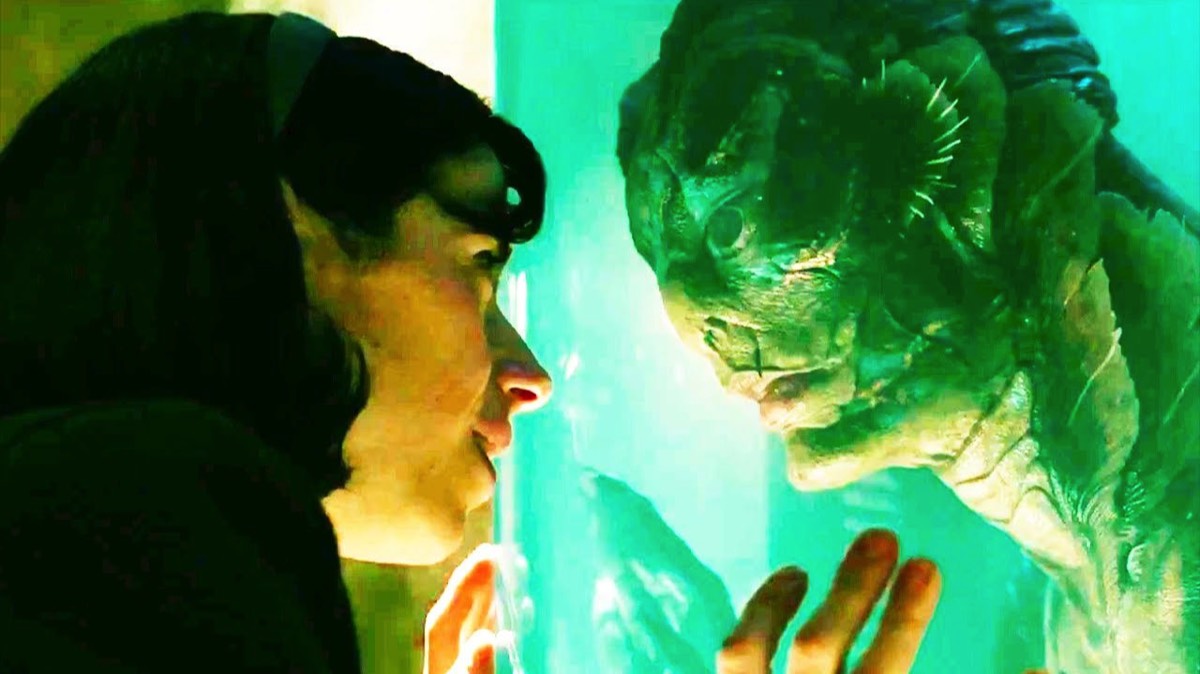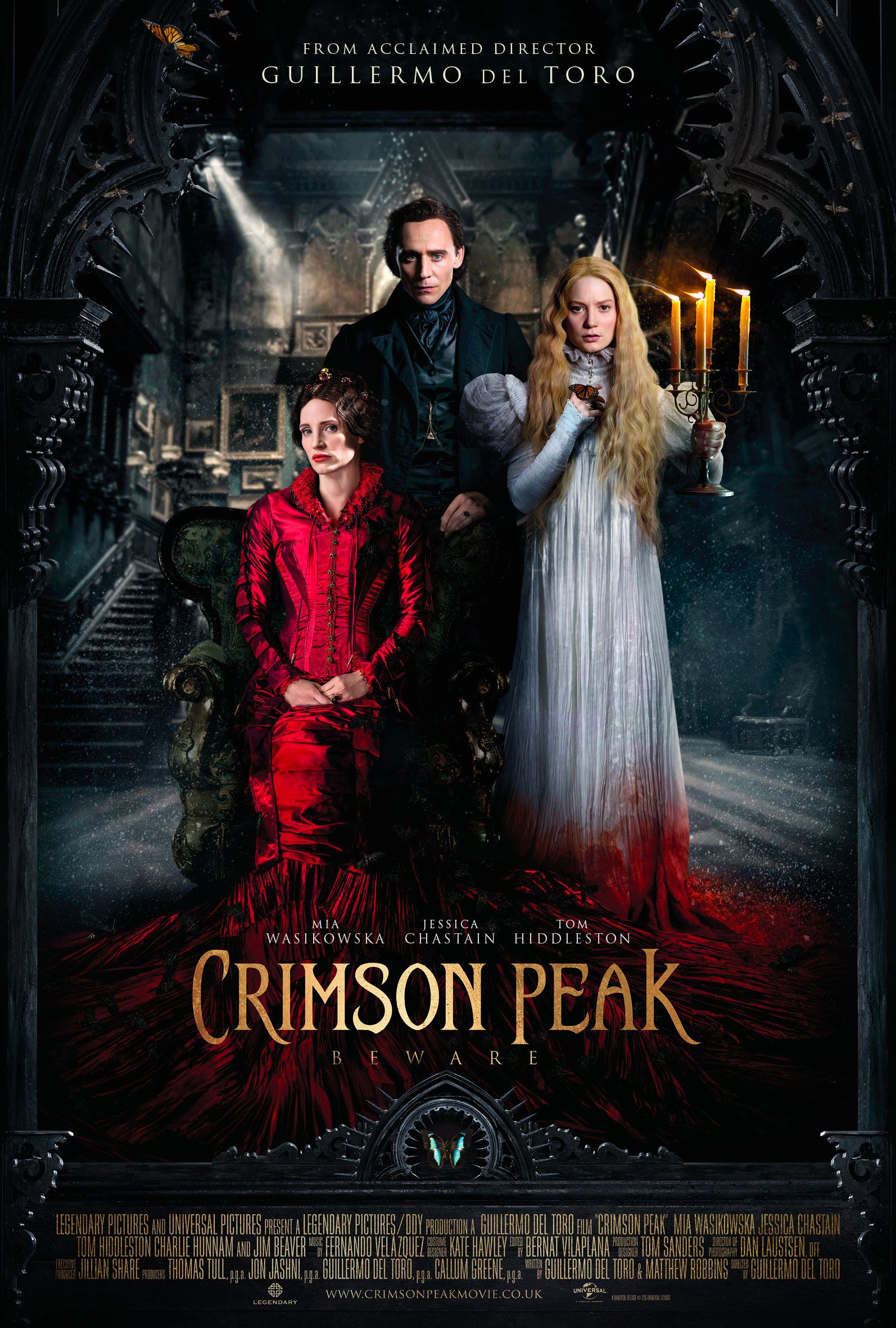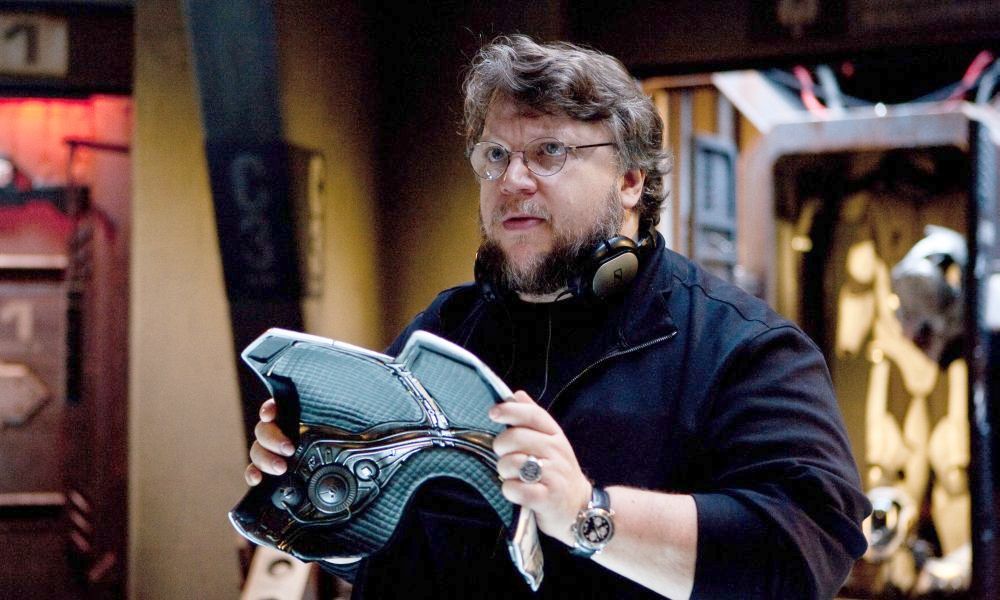"Del Toro's feverish concoctions, steeped in religious imagery and supernatural dread, are phantasmagorical entertainments that satisfy horror-fantasy purists and general moviegoers alike." - Andrew Bailey (Cinema Now, 2007)
Guillermo del Toro
Director / Screenwriter / Producer
(1964- ) Born October 9, Guadalajara, Jalisco, Mexico
Top 250 Directors / 21st Century's Top 100 Directors
(1964- ) Born October 9, Guadalajara, Jalisco, Mexico
Top 250 Directors / 21st Century's Top 100 Directors
Key Production Countries: USA, Mexico
Key Genres: Fantasy, Horror, Action, Period Film, Comic-Book Superhero Film, Creature Film, Haunted House Film, Science Fiction, Gothic Film, Adventure
Key Collaborators: Guillermo Navarro (Cinematographer), Ron Perlman (Leading Character Actor), Doug Jones (Character Actor), Dan Laustsen (Cinematographer), Bertha Navarro (Producer), Bernat Vilaplana (Editor), Peter Amundson (Editor), Federico Luppi (Leading Character Actor), Marco Beltrami (Composer), Carol Spier (Production Designer), Selma Blair (Leading Actress), Charlie Hunnam (Leading Actor)
Key Genres: Fantasy, Horror, Action, Period Film, Comic-Book Superhero Film, Creature Film, Haunted House Film, Science Fiction, Gothic Film, Adventure
Key Collaborators: Guillermo Navarro (Cinematographer), Ron Perlman (Leading Character Actor), Doug Jones (Character Actor), Dan Laustsen (Cinematographer), Bertha Navarro (Producer), Bernat Vilaplana (Editor), Peter Amundson (Editor), Federico Luppi (Leading Character Actor), Marco Beltrami (Composer), Carol Spier (Production Designer), Selma Blair (Leading Actress), Charlie Hunnam (Leading Actor)
"Guillermo del Toro's part in the current renaissance in contemporary Mexican cinema is evidenced by such recent successes as Amores Perros (2000) has been pivotal... Displaying a sensibility that errs toward the subversive, he establishes a personal, visual style in which dark, gothic and often subterranean interiors are shot with precision and a highly attuned sense of colour and composition." - Contemporary North American Film Directors, 2002
"A film prodigy dedicated to Latin American cinema even as his success gave him a ticket to Hollywood, Guillermo del Toro earned a place as one of Time magazine's 50 Young Leaders for the New Millennium before he made his third film. Born in Guadalajara, Mexico, and raised by his staunchly Catholic grandmother, del Toro was already involved in filmmaking by his teens. A fan of such horror masters as James Whale, Mario Bava, George A. Romero, Alfred Hitchcock, and the work of Britain's Hammer Films, del Toro learned about makeup and effects from The Exorcist's Dick Smith as well as studying screenwriting and making Super-8, 16 mm, and 35 mm short films." - Lucia Bozzola (Allmovie)

The Shape of Water (2017)
"Approaching fanboy genre fare with all the jokey seriousness of a Marvel-comic scribe, Guillermo del Toro marries science fiction to horror while adding auteurist motifs - his inner entomologist and zealous Catholic upbringing surface again and again in his imagery and symbolism. He has tried with increasing success to alternate mainstream crowd pleasers with more art house pursuits." - Jessica Winter (The Rough Guide to Film, 2007)
"A child who grew up fascinated by monsters and fantasy films, he puts decades of his encyclopedic cinematic knowledge into his movies. This can be a double-edged sword: Sometimes, his films can be little more than a carousel of sharply rendered references, but without the soul and inspiration of his influences. But when he’s dialed in, del Toro is a master at mixing high art and pulp pleasures." - Tim Grierson & Will Leitch (Vulture, 2022)
"Guillermo del Toro's films juxtapose the world of the fantastic with horrific reality... All del Toro's films thus far employ a certain form of magical realism, available to particular age groups, occupations, creeds, or forms. Yet the nature of these worlds is always related to the protagonists entering them. Thus vampire hunters and scientists are met with damp sewers in an urban underworld, whereas children and humanity-friendly demons see a broader spectrum of creatures good, bad, and ambivalent. Del Toro's coda appears to be that monsters exist in the eye of the beholder." - Lauri Loytokoski (501 Movie Directors, 2007)
"What really distinguishes his work, and controls his teeming imagination, is the strength of the literary structure of his material—the way Mimic grows out of the attempt to create a parasite that could destroy pests; the arc by which Hellboy (a demon made in the Second World War) has become a weapon for future wars; and the ingenuity with which Pan’s Labyrinth is placed as one of the last struggles in the Spanish Civil War. Del Toro is a writer as much as a creator of warped visions, and that is how he has had such a profound influence on the way Latin American cinema has come to enrich the dying strain of fantasy in American pictures." - David Thomson (The New Biographical Dictionary of Film, 2010)
"It would be a cliché to say that, because I am a Mexican, I see death in a certain way. But I have seen more than my share of corpses, certainly more than the average First World guy. I worked for months next to a morgue that I had to go through to get to work. I've seen people being shot; I've had guns put to my head; I've seen people burnt alive, stabbed, decapitated ... because Mexico is still a very violent place. So I do think that some of that element in my films comes from a Mexican sensibility." - Guillermo del Toro
Selected Filmography
{{row.titlelong}}
Guillermo del Toro / Favourite Films
Barry Lyndon (1975) Stanley Kubrick, City Lights (1931) Charles Chaplin, Close Encounters of the Third Kind (1977) Steven Spielberg, 8½ (1963) Federico Fellini, Frankenstein (1931) James Whale, GoodFellas (1990) Martin Scorsese, The Magnificent Ambersons (1942) Orson Welles, Nazarín (1958) Luis Buñuel, No Country for Old Men (2007) Joel Coen & Ethan Coen, Shadow of a Doubt (1943) Alfred Hitchcock.
Source: Sight & Sound (2022)
See more of Guillermo del Toro's favourites at LaCinetek (2025)
Barry Lyndon (1975) Stanley Kubrick, City Lights (1931) Charles Chaplin, Close Encounters of the Third Kind (1977) Steven Spielberg, 8½ (1963) Federico Fellini, Frankenstein (1931) James Whale, GoodFellas (1990) Martin Scorsese, The Magnificent Ambersons (1942) Orson Welles, Nazarín (1958) Luis Buñuel, No Country for Old Men (2007) Joel Coen & Ethan Coen, Shadow of a Doubt (1943) Alfred Hitchcock.
Source: Sight & Sound (2022)
See more of Guillermo del Toro's favourites at LaCinetek (2025)
Guillermo del Toro / Fan Club
Mark Kermode, Corin Hardy, David S. Goyer, David Jenkins, Anupama Chopra, Roger Ebert, Kenneth Turan, Alan Jones, David Rooney, Stephanie Zacharek, Ty Burr, Edgar Wright.
Mark Kermode, Corin Hardy, David S. Goyer, David Jenkins, Anupama Chopra, Roger Ebert, Kenneth Turan, Alan Jones, David Rooney, Stephanie Zacharek, Ty Burr, Edgar Wright.
"Fan Club"
These film critics/filmmakers have, on multiple occasions, selected this director’s work within film ballots/lists that they have submitted.
These film critics/filmmakers have, on multiple occasions, selected this director’s work within film ballots/lists that they have submitted.


